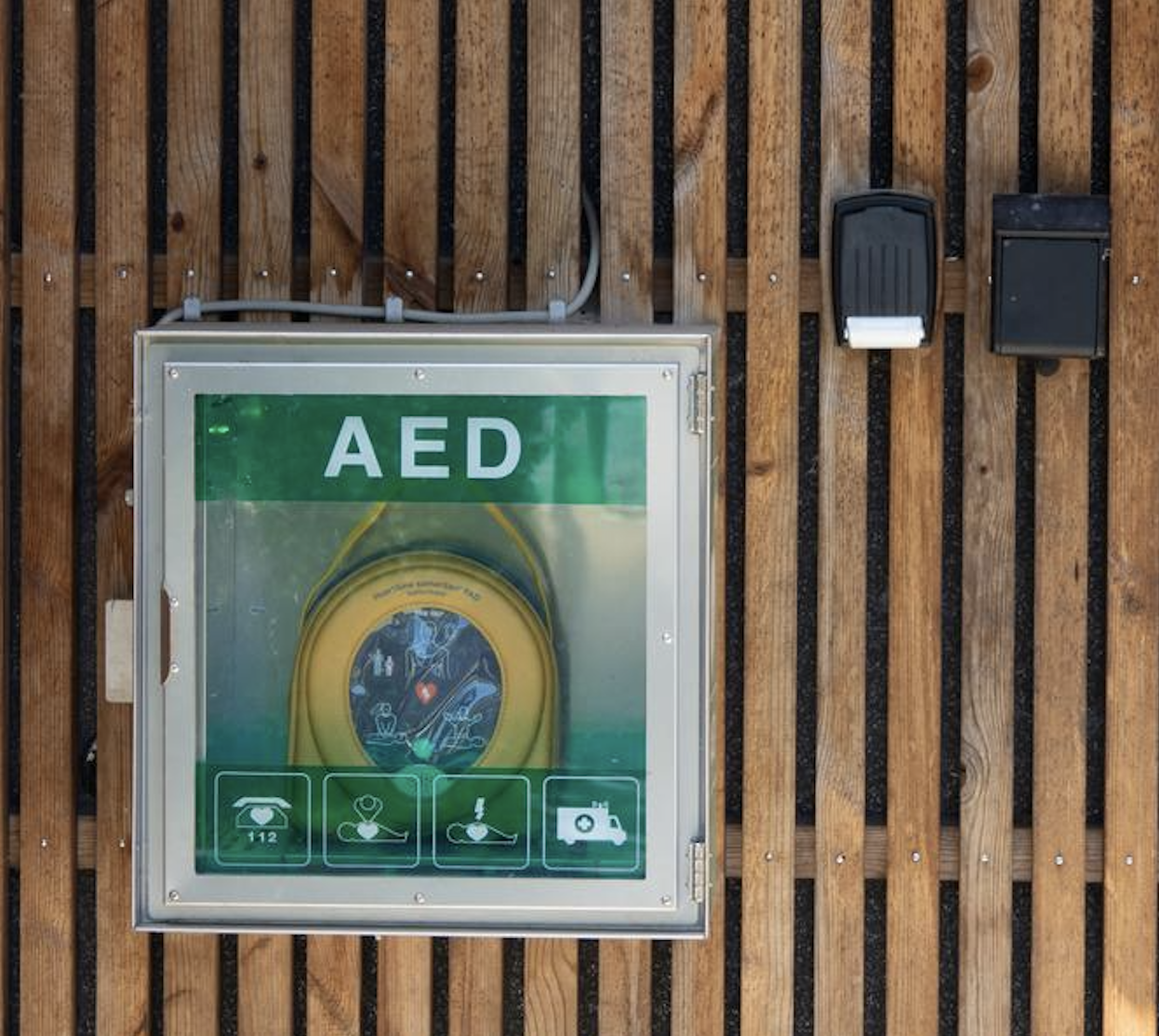The Access to AEDs Act, promoting students’ access to automated external defibrillators (AEDs) in schools, was introduced in Congress in late March by Reps. Shelia Cherfilus-McCormick (D-Fla.) and Bill Posey (R-Fla.), and Sen. Cory Booker (D-N.J.).
AFSA is a strong supporter of the legislation that will provde grants for life saving equipment to schools.
“Ensuring that the right tools and training are in place can save a life. The nation watched this unfold with Damar Hamlin of the Buffalo Bills on national television,” Cherfilus-McCormick said in a press release upon the bill's introduction. “As a mom and member of Congress, I’m on a mission to expand lifesaving health care tools to school-aged children across the country by equipping elementary and secondary schools with AEDs and routine cardiac emergency response training. AEDs were created to save lives, and that’s precisely what this bill aims to do—save our children’s lives when an emergency strikes,” she said.
“Sudden cardiac arrests can be experienced by anyone, including children," Booker noted in a press release. "In fact, student-athletes are more than 3.5 times likely to experience sudden cardiac arrest than nonathletes. They are often fatal if appropriate steps are not taken quickly. We can increase the survival rate from cardiac arrests if more schools, where our children learn and play, have access to AEDs. That is why I am proud to join my colleagues in introducing this bill that will ensure more schools carry this important tool to help save lives.”
The Access to AEDs Act is a bipartisan bill that directs the secretary of the Health and Human Services Department to award grants to elementary and secondary schools partnered with a nonprofit health care organization to develop and implement a comprehensive program to promote defibrillation access.
The grants can be used to:
- Purchase AEDs and their necessary batteries and maintenance.
- Replace old and outdated CPR and AED equipment, machinery and educational materials.
- Provide CPR and AED training to students, staff and related sports volunteers.
- Develop a Cardiac Emergency Response Plan.
- Assist schools’ athletic departments in developing heart screening programs for student-athletes.
- Establish a clearinghouse database for the reporting of AED devices already in schools.
- Establish a clearinghouse database to gather information on sudden cardiac arrest (SCA) in the pediatric population for further research.
Currently, only 23 states have AED school requirements, with varying degrees of specificity regarding mandates on whether public schools, private schools or both must have AEDs on campus and provide the necessary training on their use.
SCA is a life-threatening emergency caused by a malfunction in the heart’s electrical system or structure, caused by an abnormality from birth or one that develops over time. Annually, nearly 600,000 Americans suffer from SCA. More than 7,000 people younger than18 suffer from SCA annually in the United States, with student-athletes at greater risk. Survival from SCA more than doubles when a bystander uses a publicly available AED, as compared with waiting for emergency responders to arrive and administer an AED shock.
“An estimated 350,000 people in the United States experience sudden cardiac arrest outside of the hospital each year, and 1 in 300 youth has an undetected heart condition that puts them at risk," said Nancy Brown, the CEO of the American Heart Association. "Having community members trained in CPR, making AEDs available in schools, and encouraging schools to develop emergency response plans will make schools better prepared to respond to sudden cardiac arrest and save lives. We greatly appreciate Representatives Cherfilus-McCormick and Posey for their work to prioritize heart health with the introduction of the Access to AEDs Act, which will promote access to defibrillation in elementary and secondary schools by supporting lifesaving training programs for students, staff and school volunteers.”
“We know that we all believe that everyone deserves the same chance of survival as professional athletes. Unfortunately, that’s not the reality,” said Hector Paredes and Rhina Paredes-Greeson, co-founders of the Eric Paredes Save A Life Foundation, in a press release. “Our family knows firsthand how life-altering it is to lose a child and then learn, after the fact, that there are preventable and lifesaving measures that could have saved them. We need to do all we can to protect your children's hearts, whether they’re at school, practice or an after-school activity.”
“As parents of Morgan Danielle Manning, who died suddenly at the age of 14 from sudden cardiac arrest—due to the rare heart condition called CPVT, or catecholaminergic polymorphic ventricular tachycardia—we strongly endorse The Access to AEDs Act introduced by Congresswoman Sheila Cherfilus-McCormick,” Kerwin and Madelyn Manning, founders of A Piece of My Heart Foundation, said in a press release upon the introduction of the measure.
Besides AFSA, the legislation has been endorsed by the American Heart Association, the National Football League, Major League Baseball, the National Hockey League, the National Basketball Association, the Women’s National Basketball Association, the National Association for Stock Car Auto Racing, Major League Soccer, the National Collegiate Athletic Association, Who We Play For, the American College of Cardiology, American Red Cross, Parent Heart Watch, Simon’s Heart, Heart of the Game, Eric Paredes Save a Life Foundation, Youth Sports Safety Alliance/National Athletic Trainers’ Association, the National Alliance for Youth Sports, the National Association of State EMS Officials, the National Association of EMS Physicians, the Heart Rhythm Society, Defibtech, In A Heartbeat, the Sudden Cardiac Arrest Foundation, the John Taylor Babbitt Foundation, A Piece of My Heart Foundation, the National Association of School Nurses and Every Second Counts, CPR.

